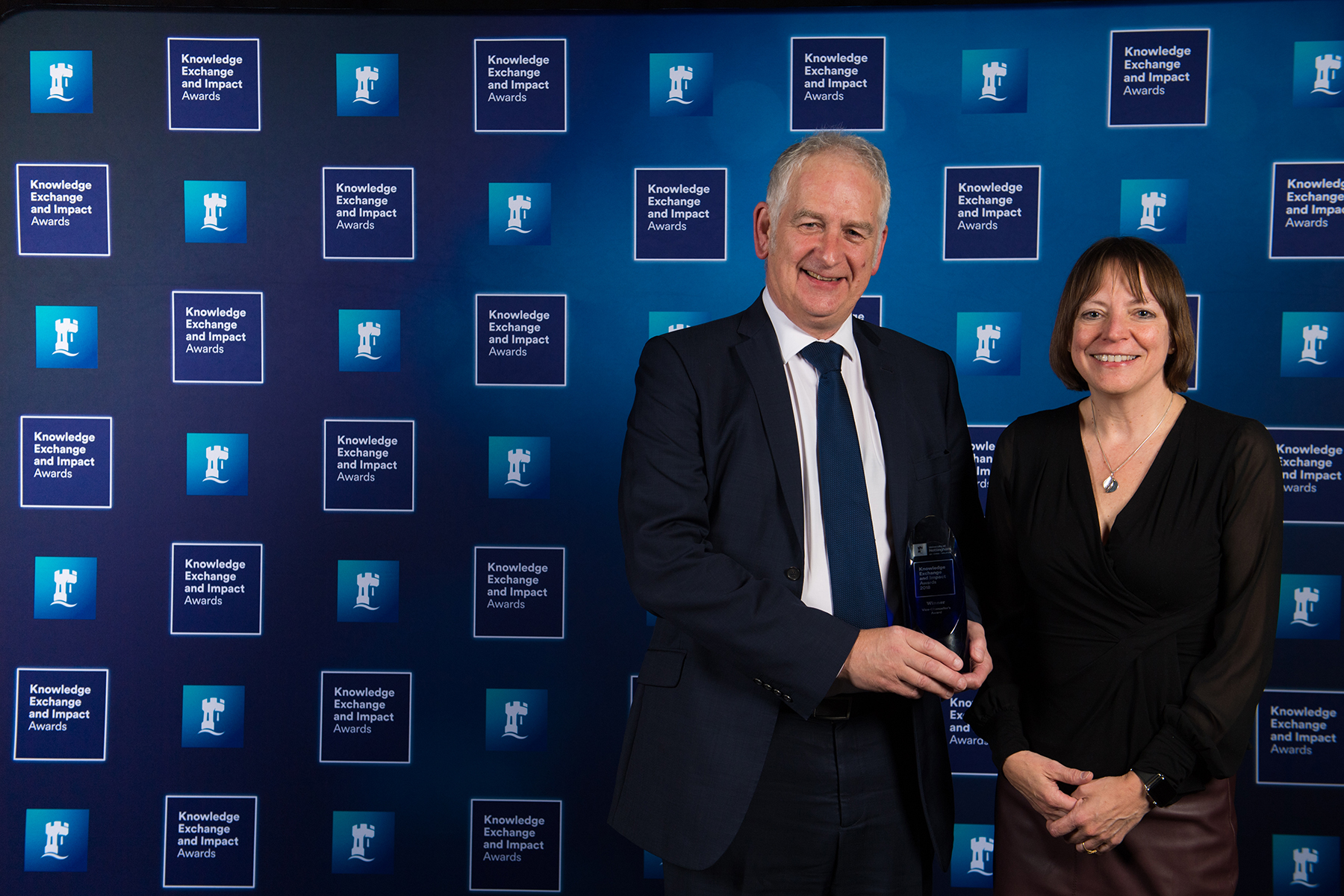
November 23, 2018, by Rob Ounsworth
Knowledge Exchange and Impact Awards 2018 – our inspirational winners
The discovery of new bacteria-resistant plastics to reduce the incidence of hospital acquired-infections, one of the UK’s most significant heritage regeneration projects, a one-in-a-million snail and keyhole surgery for jet engines were some of the research projects recognised at the University’s Knowledge Exchange and Impact Awards 2018.
More than 250 colleagues, industry and civic partners and friends attended the awards evening at the East Midlands Conference Centre to celebrate the impact of our research in Nottingham, the UK and across the world.
Professor Barrie Hayes-Gill of the Faculty of Engineering received the Vice-Chancellor’s award for Sustained Excellence in Knowledge Exchange. Professor Hayes-Gill is the driving force behind two spin-out companies, including the development of world-leading foetal monitoring technology which is benefiting millions of expectant mothers and unborn children around the globe. His work includes 16 patents, and together with his team he’s secured more than £20m of grant funding and investment.
Professor Shearer West, President and Vice Chancellor of the University of Nottingham, presented the award (pictured). She said: “Professor Hayes-Gill is an outstanding researcher and an inspirational figure. Throughout a distinguished career he has matched a commitment to discovery and flair for building partnerships with a passionate advocacy of our mission to translate world-class innovation into products and applications that change lives.”
Professor Hayes-Gill, who joined the University in 1986 and is Professor of Electronic Systems and Medical Devices, said: “This is a wonderful honour and one which I am delighted and humbled to accept, not least on behalf of the many remarkable colleagues and collaborators beyond the University who have accompanied and supported me on this journey. As an electrical engineer and researcher it has been a thrill and a privilege to help address societal challenges. To see our discoveries make a real difference is hugely satisfying – and this evening also opened my eyes to inspiring work by colleagues in so many fields across the University.”
Our other winners:
Expert Commentator of the Year – Dr Paul Smith, School of Cultures, Languages and Area Studies
Dr Smith is recognised as an essential source of information, opinion and analysis on the French political system. He’s made over 150 media appearances in the last two years is regularly offers expert commentary on news and current affairs broadcasts around the world.
Research Story of the Year – #SnailLove, Dr Angus Davison, School of Life Sciences
Jeremy the lovelorn snail was a global media phenomenon. Dr Davison’s enthusiastic participation in our #SnailLove campaign reached 1.8bn people around the world, and introduced his ground-breaking genetics research to an unprecedent audience.
Policy Impact – Professor Antoni Kapcia, School of Cultures, Languages and Area Studies
Professor Antoni Kapcia is the UK’s foremost expert on Cuba. With 47 years of research into modern and contemporary Cuban history, his insight helps media, businesses, UK and foreign governments to better understand Cuba’s unique political culture.
-
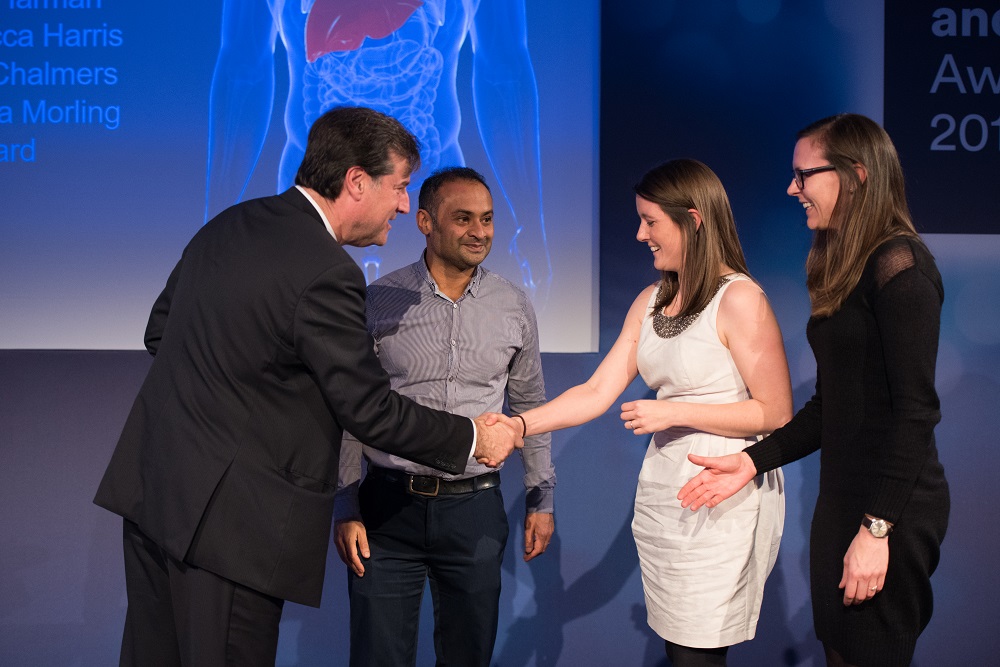
- Professor Dean Fathers, chair of Nottinghamshire Healthcare NHS Foundation Trust, left, presents the award to the Scarred Liver team
Faculty of Arts – The Curator of Rebellion at Nottingham Castle, Dr Richard A Gaunt
Dr Gaunt’s expertise in British political history is enriching one of the most significant heritage regeneration projects in the UK. He is Curator of Nottingham Castle’s new Rebellion Gallery, which focuses on key moments in the City’s rebellious history since the 16th Century. Dr Gaunt also helped to secure more than £13m of funding towards the £29.5m Nottingham City Council project.
Faculty of Engineering – Remote keyhole surgery for jet engines, Professor Dragos Axinte, Dr Amir Rabani, Bilal Nasser, Dr Adam Nagy, David Alatorre Troncoso, Dr James Kell
Robotics and tools developed at the University of Nottingham have enabled Rolls-Royce to repair jet engines remotely using keyhole surgery. The prototype was demonstrated on an engine trial in a Rolls-Royce facility, a world-first for this type of repair. The technology will save significant costs by reducing unplanned engine removals from aircraft wings.
Faculty of Medicine and Health Sciences – The Scarred Liver project, Dr Neil Guha, Professor Guru Aithal, Dr Emilie Wilkes, Dr Martin James, Professor Steve Ryder, Dr Dave Harman, Dr Rebecca Harris, Dr Jane Chalmers, Dr Joanna Morling, Dr Tim Card
The team’s research contributed to a new, CE-marked, diagnostic test for liver disease. Their work influenced a radical change in clinical practice across Nottinghamshire, where data evaluation showed 50% of significant liver disease would have been missed by the traditional referral pathway. Their research has been endorsed by the National Institute for Health and Care Excellence (NICE) and the Royal College of General Practitioners and their vision is to see the test adopted across the country.
Faculty of Science – Bacteria-resistant plastics – Professor Morgan Alexander, Emeritus Professor Martyn Davies, Professor Paul Williams (Faculty of Medicine and Health Sciences), Professor Derek Irvine (Faculty of Engineering)
Bacteria-resistant plastics discovered at the University have been developed with a commercial partner for use in urinary catheters. The device, awarded a CE mark in 2017, is being trialled in UK hospitals. It has the potential to reduce the burden of hospital-acquired infections, and could benefit many patients around the world. This is just the first of many potential commercial applications of the technology.
Faculty of Social Sciences – Antislavery data: Measuring and mapping to end global slavery – Professor Kevin Bales, Professor Sir Bernard Silverman, Professor Todd Landman, Dr Doreen Boyd, Dr James Goulding, Dr Alex Trautrims, Minh Dang, Dr Andrea Nicholson, Dr Austin Choi Fitzpatrick
Five teams from the University’s Rights Lab, one of our transdisciplinary Beacons of Research Excellence, have worked together to make globally recognised advances in measuring the risk and prevalence of modern slavery. Their research has changed the quality of evidence available to policymakers, and they advise bodies including the Home Office and the United Nations.
Many of the winners and nominees are profiled in Vision, the University’s research and knowledge exchange magazine.
Professor Dame Jessica Corner, Pro-Vice-Chancellor for Research and Knowledge Exchange, who welcomed guests, said: “This was inspirational evening. It was a celebration of not only exceptional individuals and transdisciplinary teams but the power of our partnerships. By exploring new ways of working with collaborators beyond the University, our research is delivering innovation that is having a real impact, enriching and saving lives and increasing our understanding of the world and the challenges we face.”
Executive Chair of Research England David Sweeney, a guest at the awards, said: “What impressed me at the awards was the across-the-board demonstration of research impacts which hit local, national and global issues. [This is] evidence of a university which regards external engagement as an embedded activity.”
No comments yet, fill out a comment to be the first

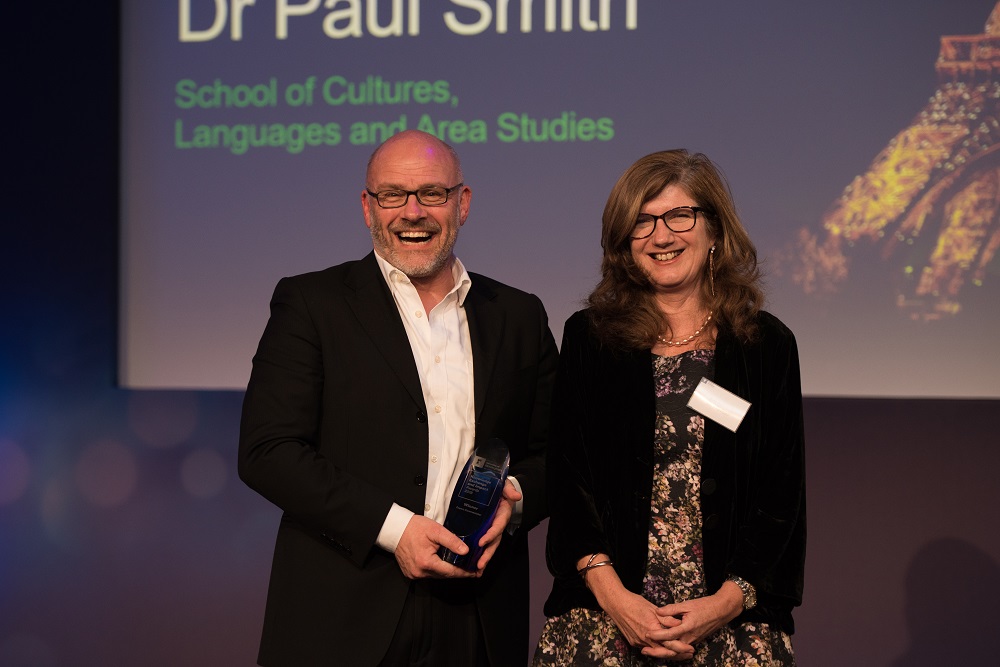
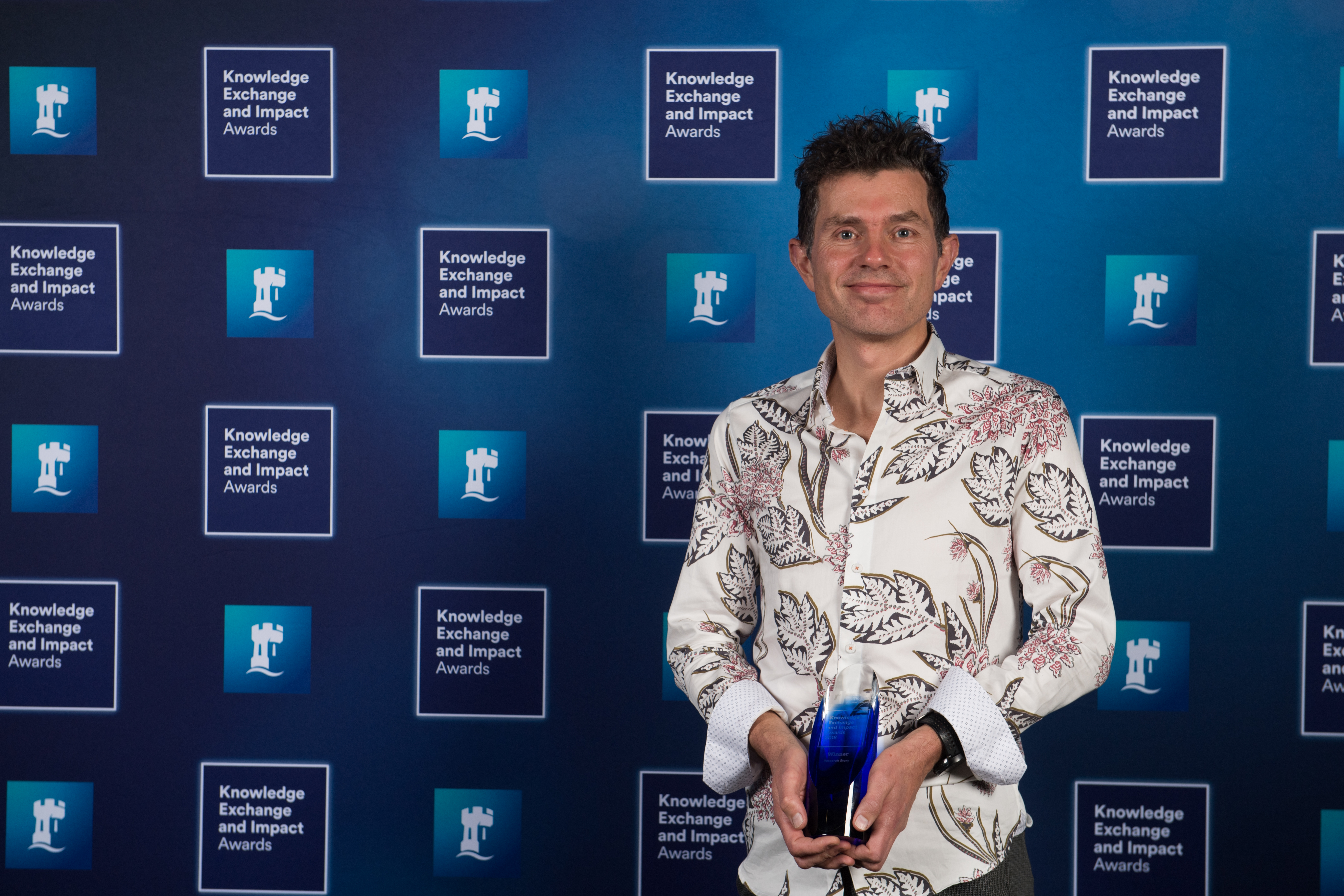
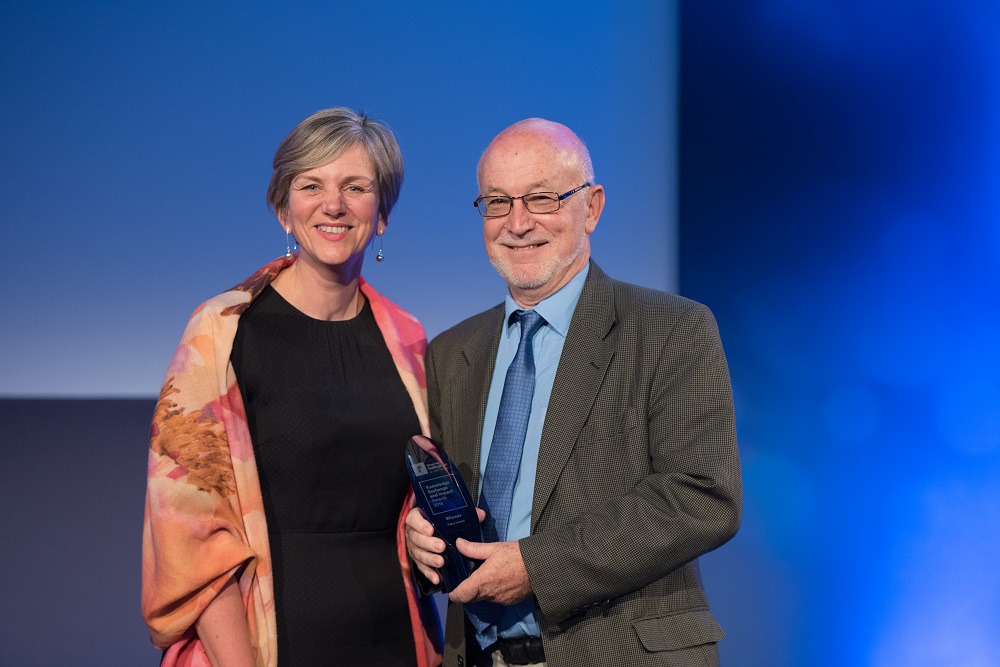

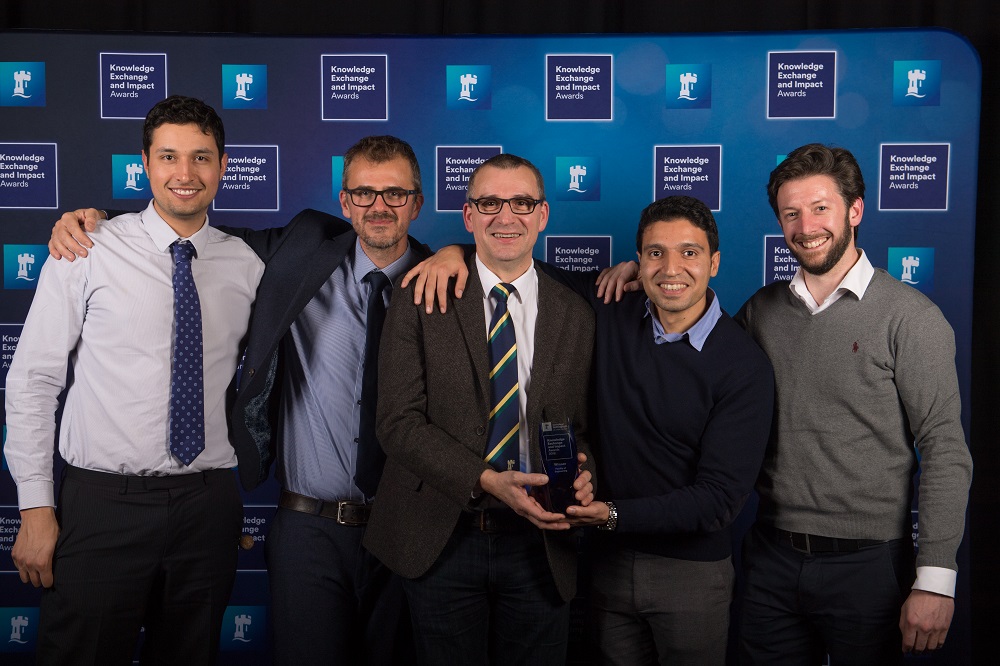

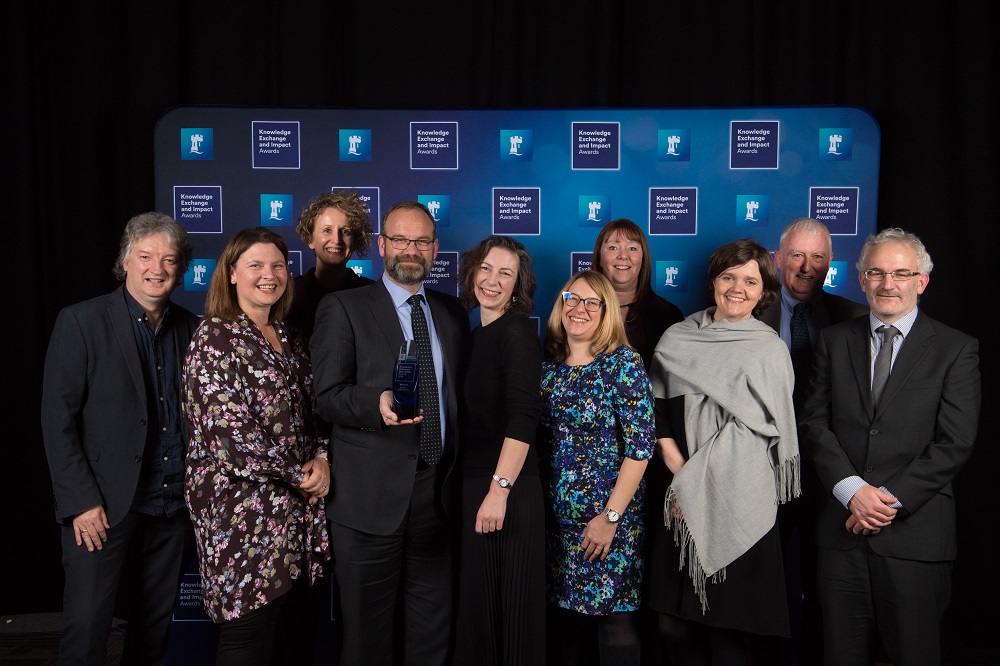
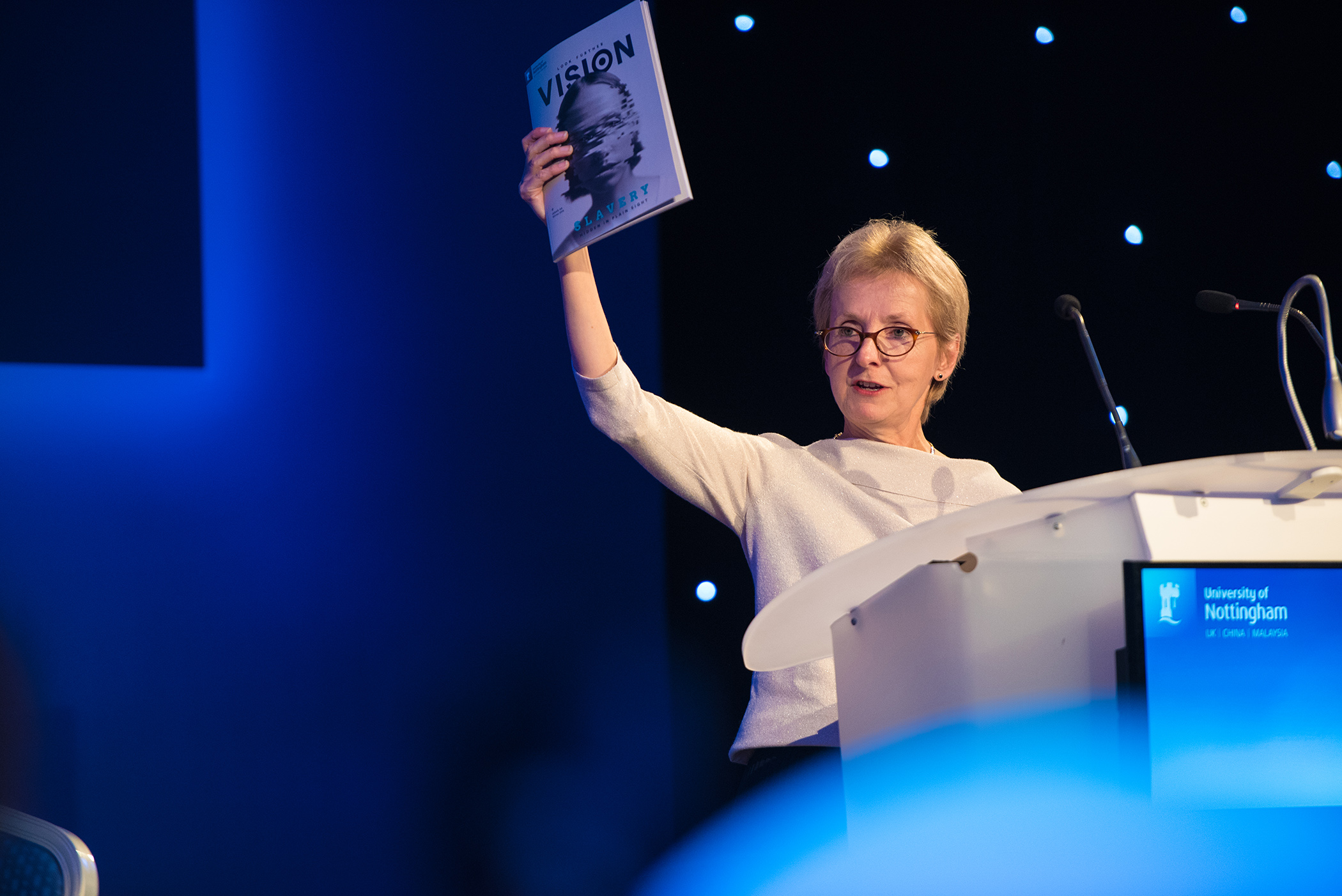
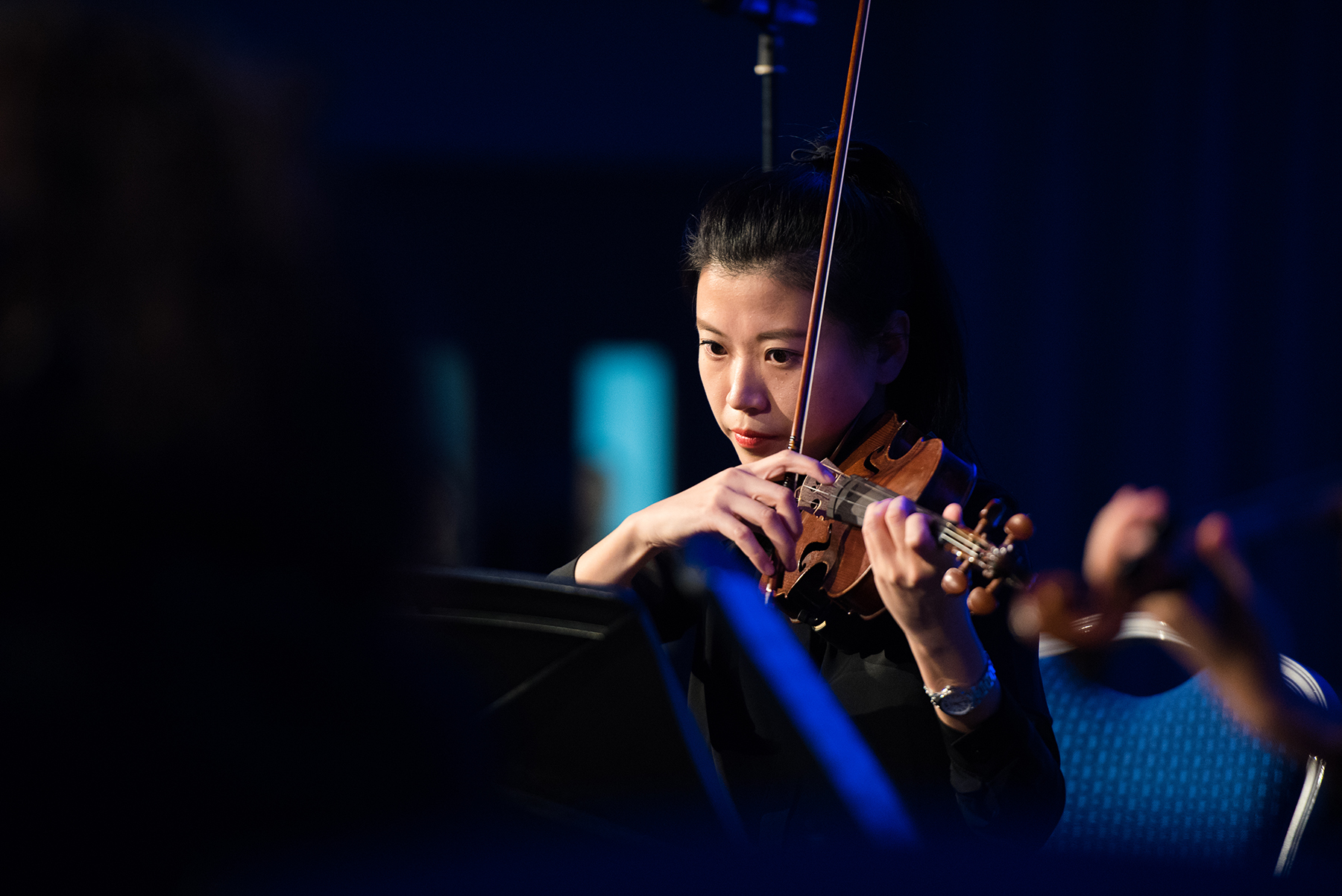
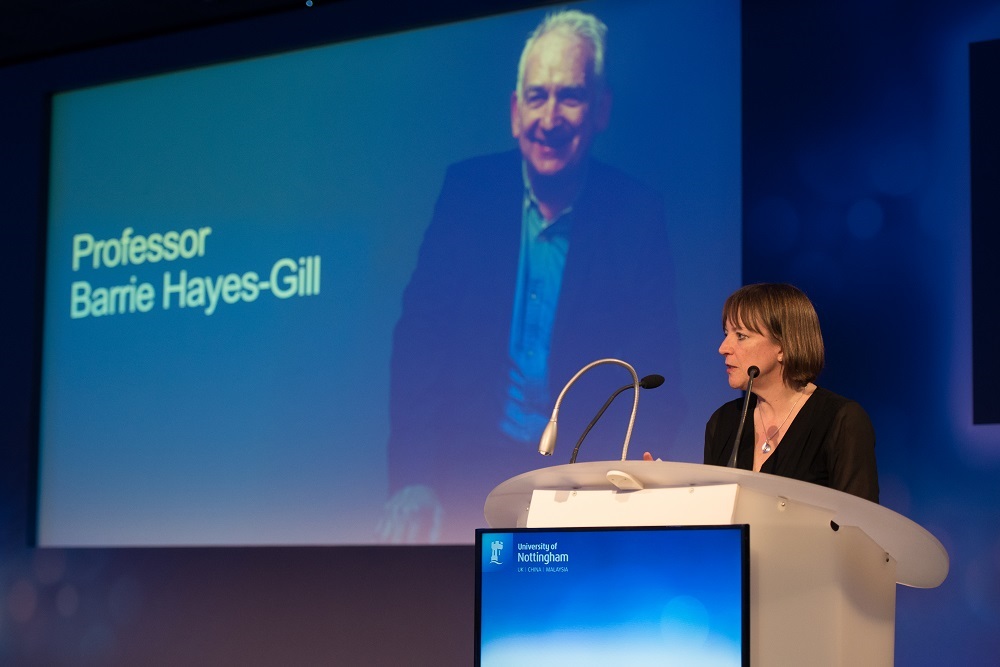
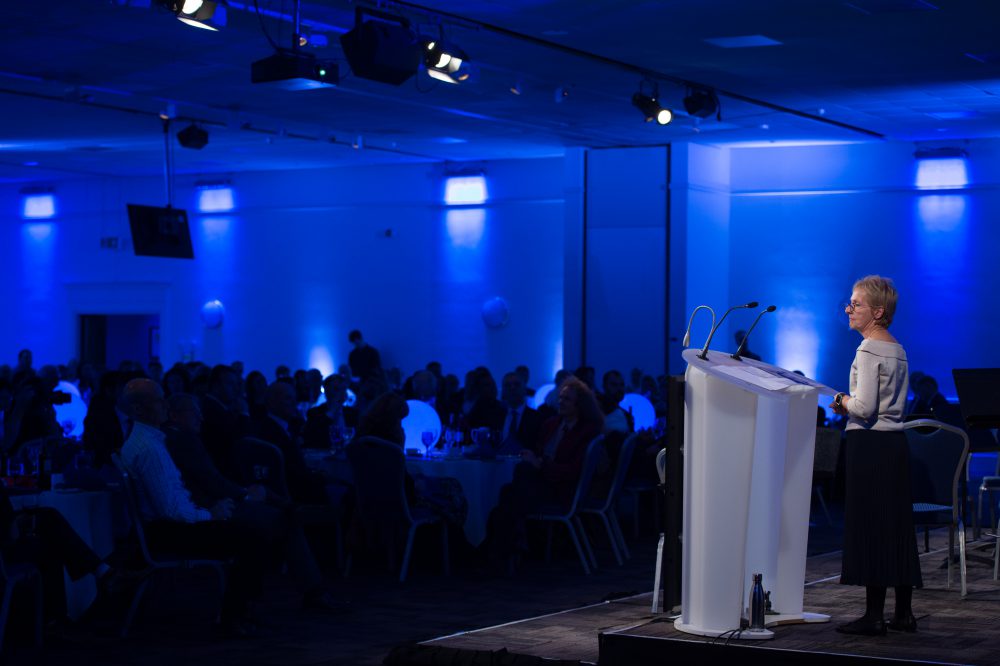
Leave a Reply